07:33
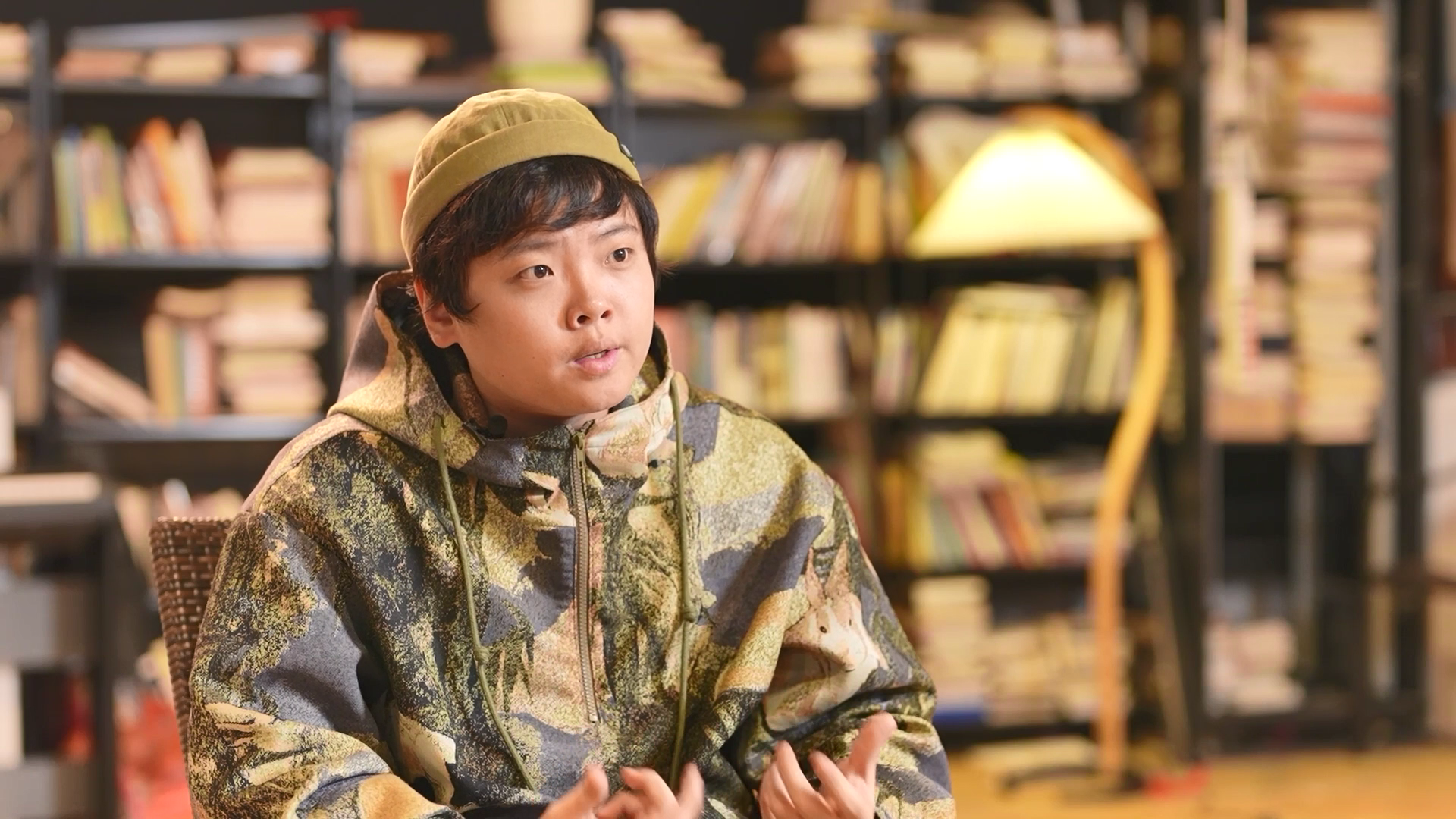
Ding Yiteng has been hailed as "the pioneering young theater director of the new generation in contemporary China." His acting performances have received acclaim from renowned theater directors such as China's Meng Jinghui and Italy's Eugenio Barba. As a director, he attempts to fuse Chinese opera techniques with contemporary theater.
Ding says Western audiences are growing tired of watching kung fu, Chinese opera, and other traditional performances that have been replayed for decades. He believes they may be more interested in how young Chinese think about the world, which is why he is focusing on theaters that bring these contemporary ideas to the fore.
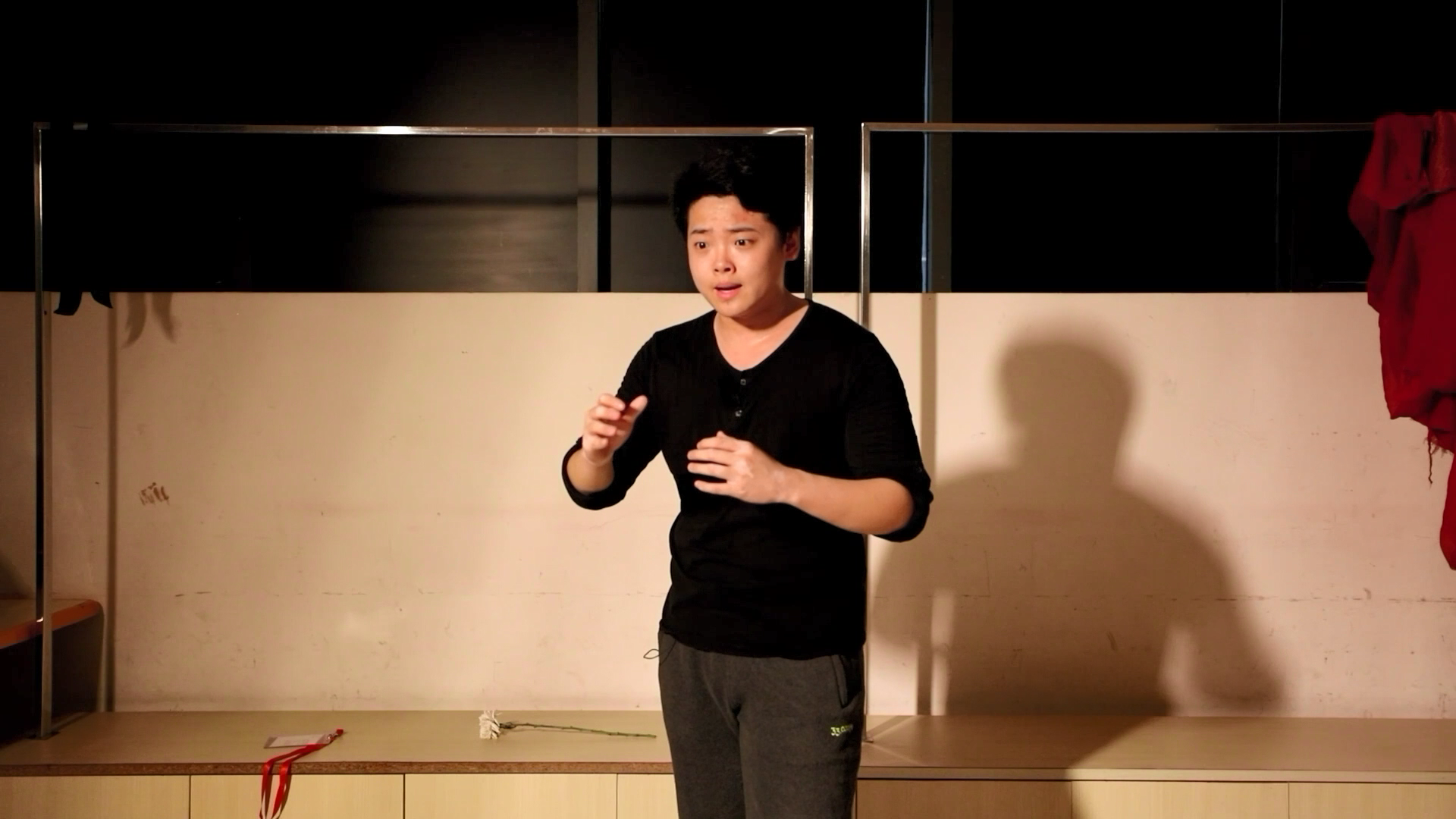
Ding Yiteng practices Chinese opera in studio. /Courtesy: Ding Yiteng
Ding Yiteng practices Chinese opera in studio. /Courtesy: Ding Yiteng
Born in Beijing in 1991, Ding is an emerging artist in Chinese theatrical circles. He was fascinated by the stage from an early age. In middle school, Ding appeared in his first play, "Beauty and the Beast," based on the novel by French author Jeanne-Marie Leprince de Beaumont.
At college, he became hooked on theater and devoted himself to performing. After graduation, he formed a drama troupe and adapted French playwright Jean Genet's "The Maid." In 2014, the play was staged at the 2nd Wuzhen Theatre Festival. It caught the attention of world-acclaimed director Eugenio Barba, founder of the avant-garde theater group Odin Teatret in Denmark. At the master's invitation, Ding studied with the Danish theater company in 2015, becoming the first Chinese actor in the troupe's 50-year history.
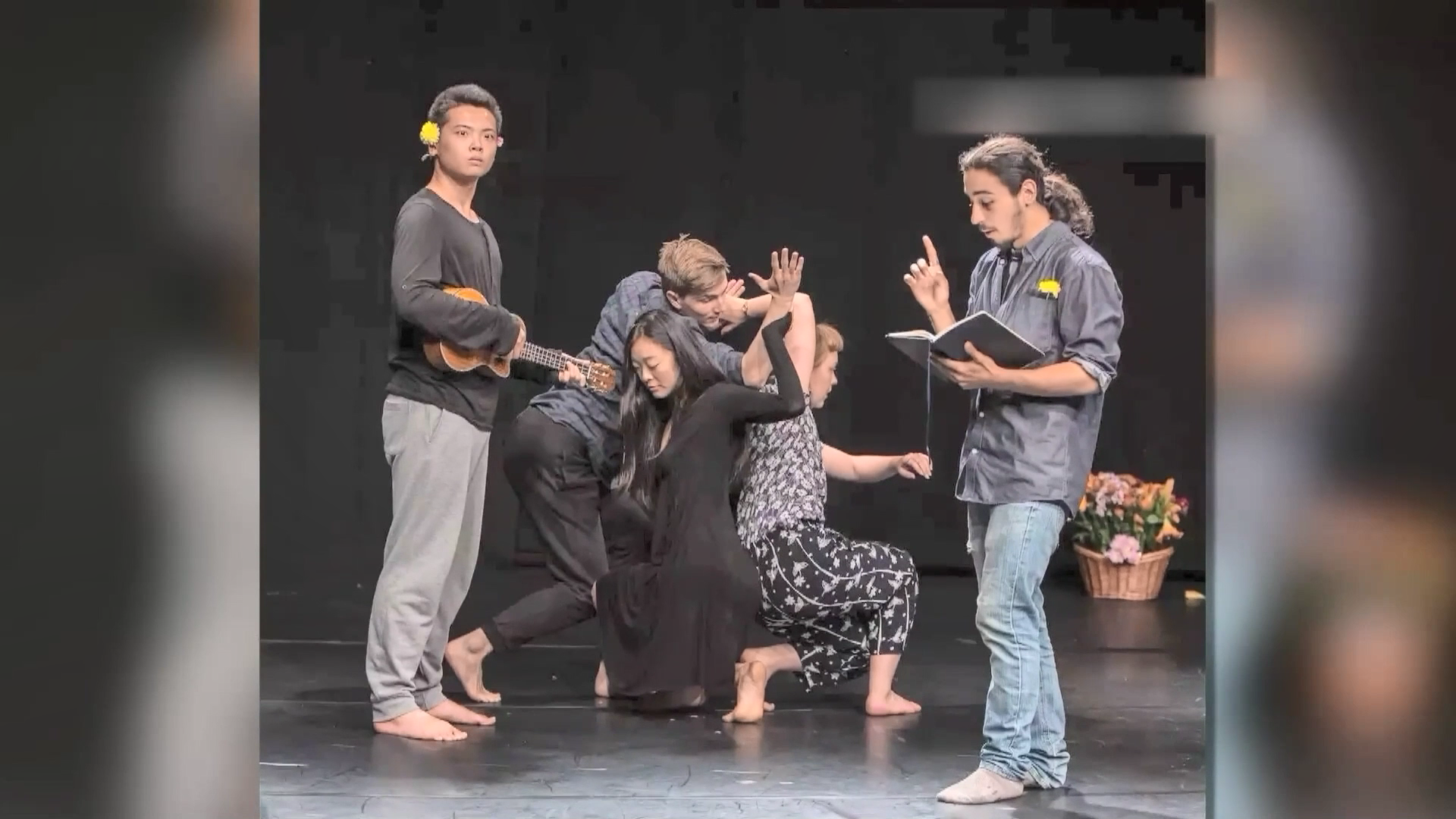
Ding Yiteng (L) rehearses with other actors at the Odin Teatret. /Courtesy: Ding Yiteng
Ding Yiteng (L) rehearses with other actors at the Odin Teatret. /Courtesy: Ding Yiteng
Ding says his experience there opened new windows of opportunity. He got to see troupes perform from Denmark, France, and the UK, which encouraged him to create a new brand of theater in China.
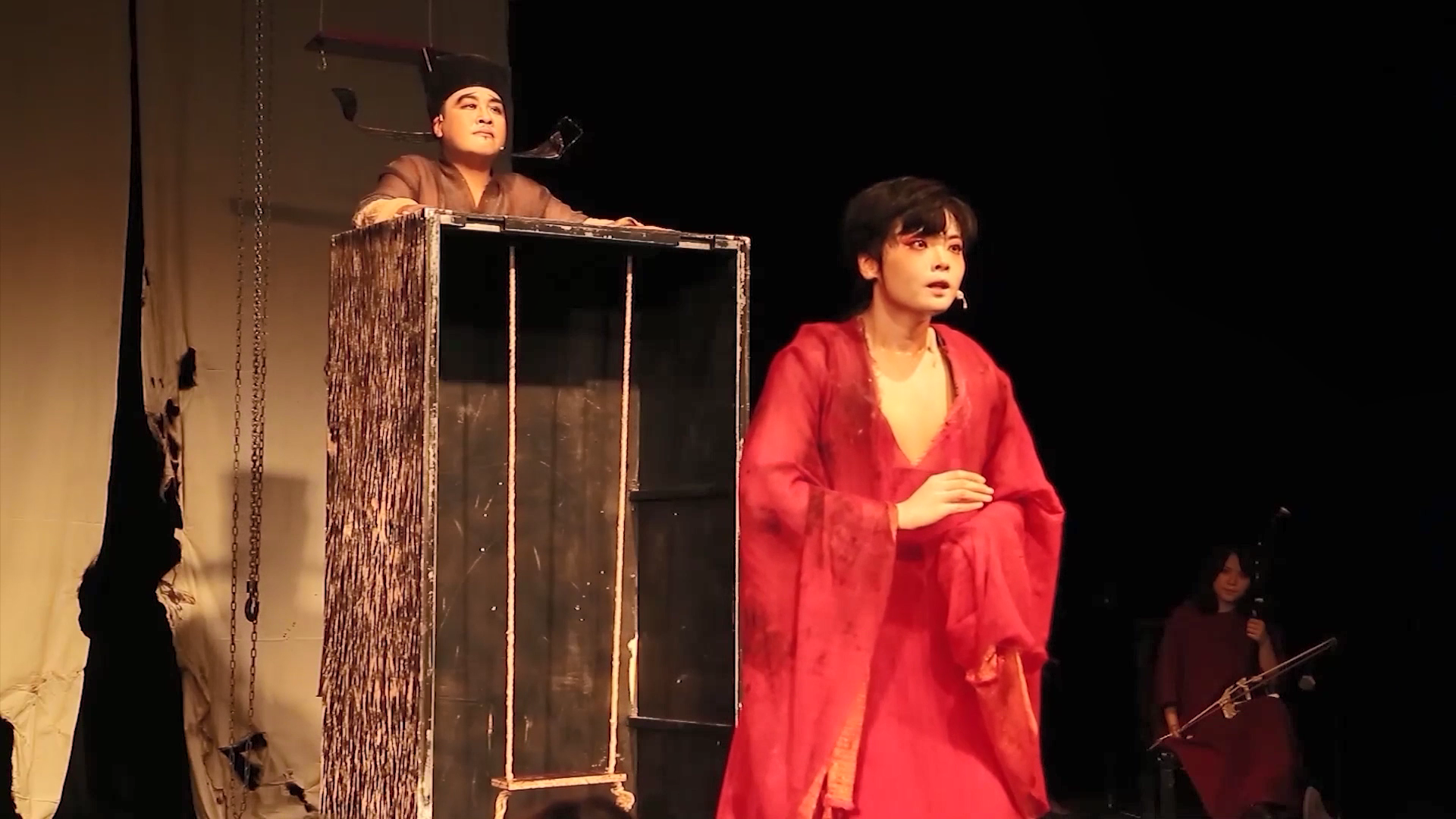
A still of "Injustice to Tou'O" /Courtesy: Ding Yiteng
A still of "Injustice to Tou'O" /Courtesy: Ding Yiteng
After his stint at the Odin Teatret, Ding studied Chinese dramas and reinterpreted traditional plays. In 2016, he made his directorial debut with an adaptation of the classic Yuan Dynasty tale "Dou E Yuan," or "Injustice to Tou'O." Ding starred as the lead character, Dou E, a woman wrongly convicted of murder by a corrupt court official.
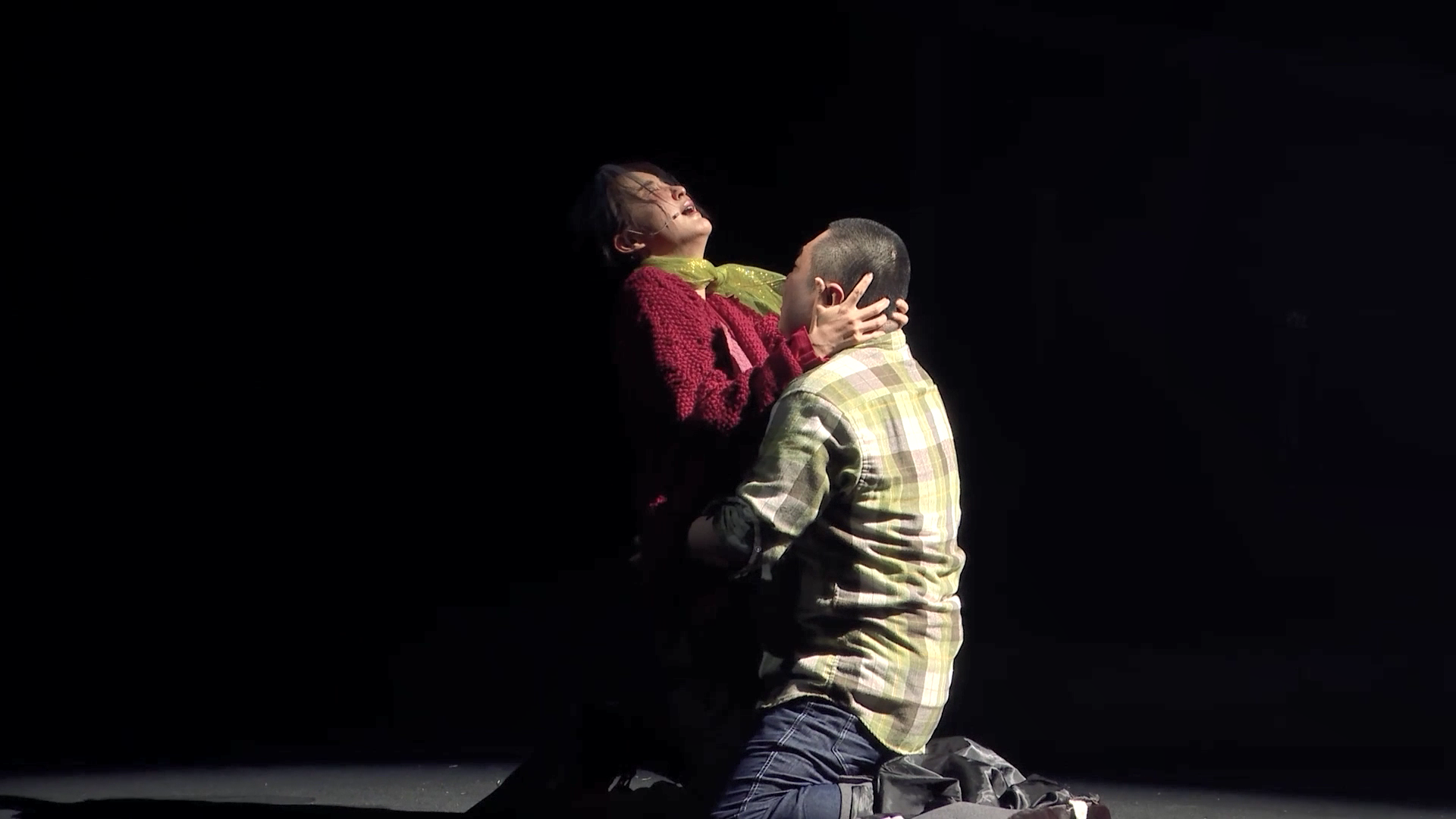
A still of "I Did Not Kill My Husband" /Courtesy: Ding Yiteng
A still of "I Did Not Kill My Husband" /Courtesy: Ding Yiteng
Ding has many traditional plays under his belt, including his latest piece, "I Did Not Kill My Husband," based on the eponymous work by Chinese novelist Liu Zhenyun. It centers on a woman, Li Xuelian, who lives in rural China and spends over 20 years earning back society's respect after her former husband tarnishes her reputation.
The stage adaptation integrates modern elements with traditional performing arts. It features somersaults and other movements from Peking Opera as well as playful rap and hip-hop. Ding calls the style "New Codification," a new method of theater acting that combines Western and Chinese techniques.
In 2021, Ding reimagined Oscar Wilde's classic novel, "The Picture of Dorian Grey" for the 8th Wuzhen Theatre Festival. Entitled "Reflection," his version of the tale follows a kind-hearted fisherman who has been bullied by a local thug and ignored by the other villagers. Although the story is a Western classic, Ding said the emotions conveyed in the play are universal, including love, desire and creativity.
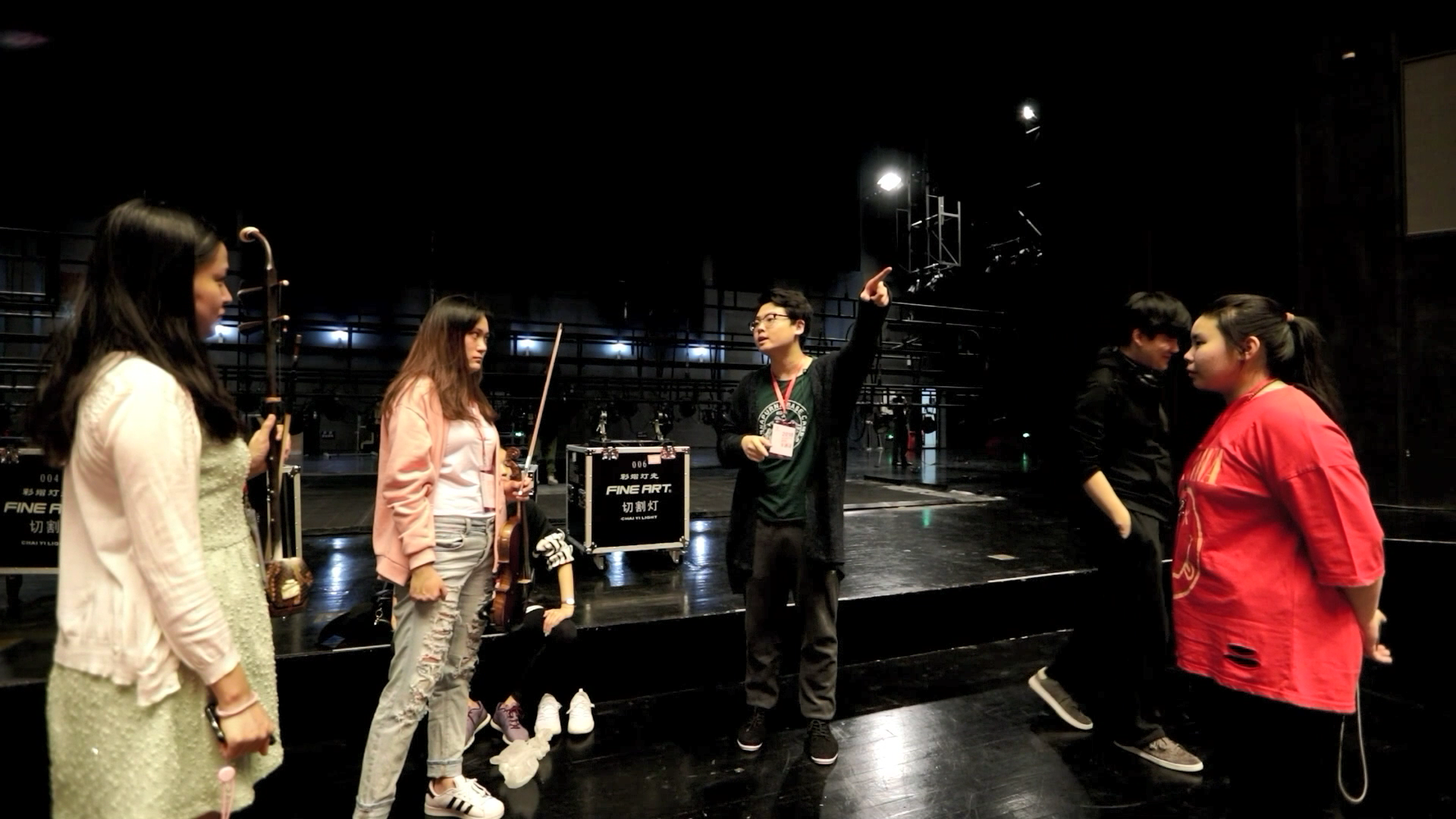
Ding Yiteng works with his team in a theater in Beijing. /Courtesy: Ding Yiteng
Ding Yiteng works with his team in a theater in Beijing. /Courtesy: Ding Yiteng
Ding recalls how he used to visit art museums every week to draw inspiration for his works from the likes of Van Gogh, Picasso, Dali, and various world civilizations.
Now that he has successfully made the transition from acting to directing, he hopes to create more innovative spaces for budding thespians who are keen to push the creative envelope.